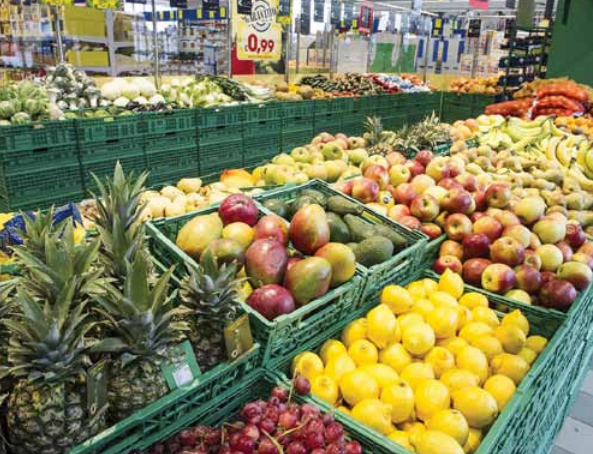
Gruppo Lillo, Italy’s 2nd-ranking retailer in the discount segment and 3rd in terms of turnover, has made itself a name for genuine, constant convenience with its MD and LD brands.
One of the main aims of Gruppo Lillo and its MD and LD brands is to make the most of the Italian origin of their products, seeking out the best price/quality balance by combining it with real, constant convenience. However, Luigi LaMontagna, the group’s head fruit and vegetable buyer, warned that Italian customers already know what they want and are not prepared to spend too much just because the product has been grown in Italy. As the MD and LD buying chief explained: “Italian consumers know exactly what they want: competitive prices without sacrificing the quality of the fruit. For many years, Italian fresh produce supplies have been standing still under the Made in Italy banner. Nowadays, saying the fruit is Italian is no longer reason enough for its being really good, just as the fruit does not have to be expensive to be of good quality. With more produce of high quality available at competitive prices from competitor countries, Italian consumers have understood that they can demand more.”
Competitiveness is indispensable
“I think the time has come for the Italian produce sector, particularly in the south of the country, to become more competitive and go out and earn a market share,” said Luigi LaMontagna. “By that I do not mean that they should cut costs at the expense of the workforce in the fields. On the contrary, it is precisely at that point that more care should be taken of the resources, as without quality no business can survive. I think that the best way to be competitive is to make a genuine effort to work together, joining forces and generating commercial synergies That is not easy, bearing in mind that 90% of Italian agriculture is made up of smallholdings. PGIs and DOs are doing sterling work to uphold quality, but they cannot go too far and when it comes to selling, everyone is flying their own flag. With fewer interlocutors there would be fewer obstacles, and together it would be possible to negotiate better deals and be more competitive. It is difficult but not impossible: just look at the example of apples in the north of Italy. They are well organised, highly efficient, negotiate as a group and grow stable volumes of fruit of very high quality that fetches good prices.”

New habits, new demands
It is true that the crisis has hit consumption among Italy’s volume retailers. It is also true that end consumers have changed their habits and demands, buying less fruit but demanding better quality. Even so, in spite of the general downward trend, LaMontagna asserts that sales of niche products not only have not fallen but are in fact increasing their market share. Exotic fruit imports and organic produce are clear examples, as both segments have achieved strong loyalty. The ready-to-eat boom is another example of a niche market that is prospering in these changing times and responding to new demands. A product that is ready to eat fits in perfectly with the modern habit of working at a distance from the home. Immediate consumption, a high quality product and a reasonable price are the perfect trio of advantages to spawn commercial success, as we are seeing nowadays in Italy, owing to its convenience,” LaMontagna explained.
Profile
Lillo Group S.p.A. Lillo Group SpA is one of the biggest Italian volume retailers operating in the discount channel. Its MD and LD brands are present throughout the country. In 2014 it achieved sales worth €2 billion and its market share reached 15%, making it the second-ranking Italian player in this sector. The history of the Lillo Group is that of Patrizio Podini, the sole director, who was born in Bolzano and has been active in the retail sector since the 1960s. In 1994 he decided to invest in the southern Italian regions and founded MD Discount, which continued to grow until it “disembarked” at national level in 2014 with the acquisition of the LD Market chain, with its widespread presence in the north of Italy, from Gruppo Lombardini. This created a nation-wide scenario that now boasts over 720 points of sale and a staff of over 5,000, and can shift hundreds of millions of boxes a year through six depots. The main one is at Gricignano di Aversa (province of Caserta), which covers 64,000 m². This high-tech logistics jewel was built to be sustainable, thanks to a photovoltaic installation with 9,727 solar panels, which provide enough power to supply a village of 700 houses, and to the use of LED lighting.
GO
